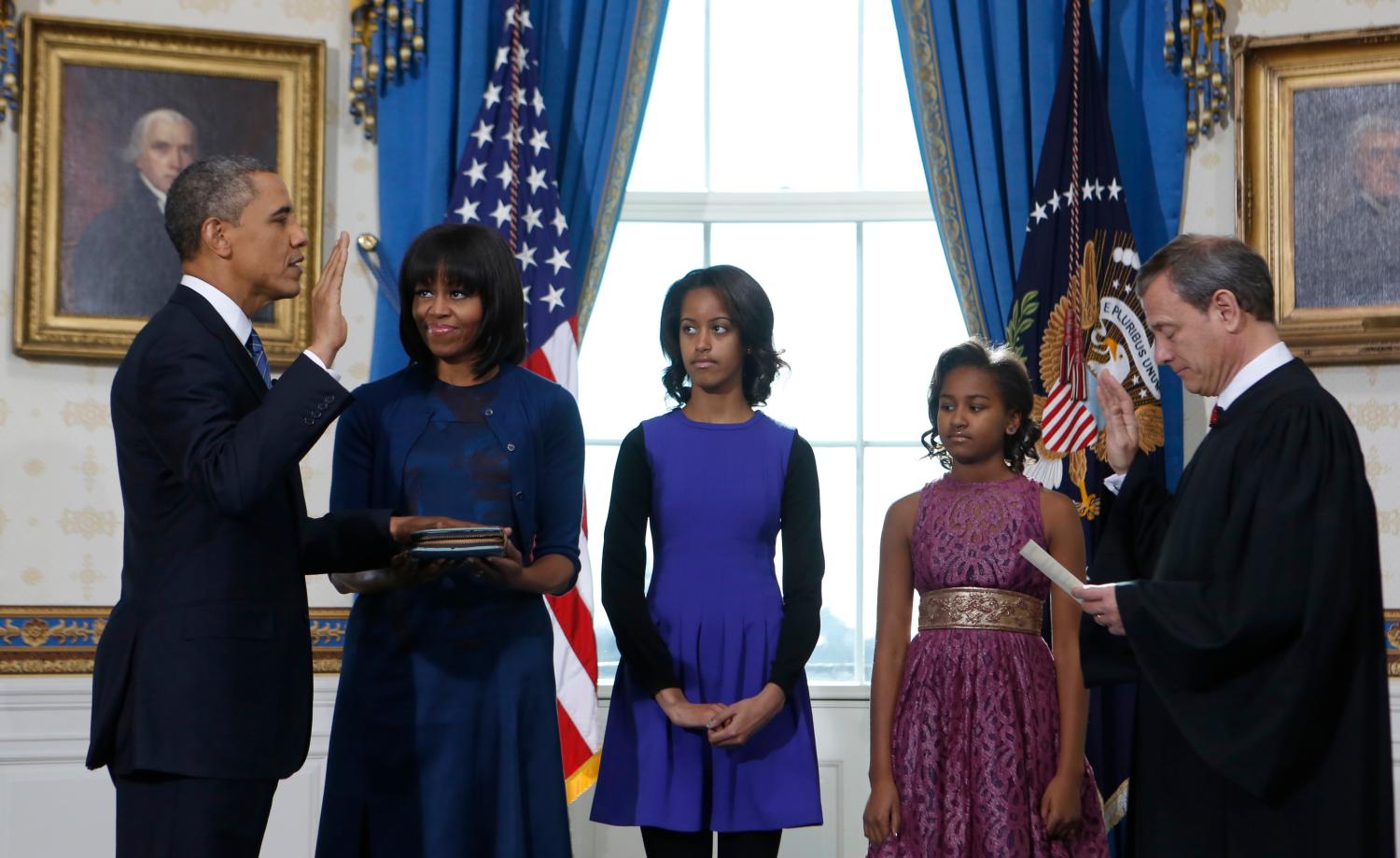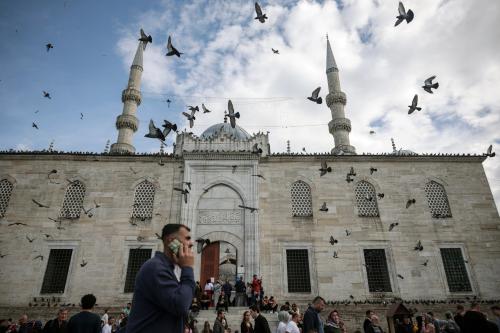Just 24 hours before Paris was subject to a series of terrorist attacks that killed more than 120 people, Rabbi Jonathan Sacks appeared at Brookings to discuss his exceptionally relevant book, Not in God’s Name: Confronting Religious Violence. In the book, Rabbi Sacks, a global religious leader, challenges the assertion that religion is an intrinsic source of violence and describes how theology can be central to combating religious violence and extremism. Through analysis of biblical texts tied to the three Abrahamic faiths, Rabbi Sacks illustrates how religiously-inspired violence stems from a critical misreading of these texts.
In his appearance at Brookings, Rabbi Sacks shared with an enthralled crowd the inspiration behind his timely book. “It was three mis-readings of the modern world that made me think that maybe we’re in trouble,” declared Rabbi Sacks, “and that’s why I wrote Not in God’s Name.”
He went on to explain the three ways in which modern, western civilization has been wrong about religion:
- There was a belief for centuries that modernization meant westernization and secularization. As Rabbi Sacks described, the 17th through 20th centuries were witness to the secularization of knowledge, power, culture, and morality. However, this secularization is not sustainable. According to Rabbi Sacks, the 21st century will be more religious than the 20th, even if not one religious believer persuades any skeptic, because “the more intensely you believe religiously, the more children you have.”
- It was assumed that all religions in the modern world would accommodate and make peace with modernity and that the fringe elements that did not wouldn’t survive. However, the opposite is true. In Christianity, Judaism, and Islam, fringe elements that are resistant to modernity are growing and flourishing.
- The western world believed that the modern period began in November 1989, when the Berlin Wall fell. In reality, argues Rabbi Sacks, the modern period began months earlier when two critical events occurred: first, the fatwa issued against Salman Rushdie by Ayatollah Ruhollah Khomeini of Iran. This was the first example of the transnational power of a fatwa, and the quiet hint of a beginning of a global call to jihad according to Rabbi Sacks. Second—the most important event in modern times—the Soviet Union pulled out of Afghanistan. This told radical Muslims that a handful of dedicated radical mujahidin could cause the humiliating retreat of one of the world’s two super powers. And nine months later, the Soviet Union imploded. According to Rabbi Sacks, this encouraged other radicals to wonder how they could do the same to the world’s other super power, and led them to conclude that they could humiliate the United States in exactly the same way they had humiliated the Soviet Union—in Afghanistan. Rabbi Sacks argues that this notion directly led to 9/11, which was conceived as a means to make America forget to think things through and to stumble blindly into Afghanistan.
We are in a pretty difficult situation and I don’t yet see a clear way through,” concluded Rabbi Sacks after discussing the current state of religion and religious extremism in the world. One of the biggest obstacles to solving these problems, he said, is a lack of new ideas in the battle against extremism. “That is why I wrote Not in God’s Name,” he said, “just to see, can we put new ideas on the table?”
For more on those new ideas, watch the complete footage of this powerful event, hosted as part of Governance Studies’ “Governing Ideas” series.
The Brookings Institution is committed to quality, independence, and impact.
We are supported by a diverse array of funders. In line with our values and policies, each Brookings publication represents the sole views of its author(s).





Commentary
Rabbi Sacks: Three things western civilization got wrong about religion
November 16, 2015